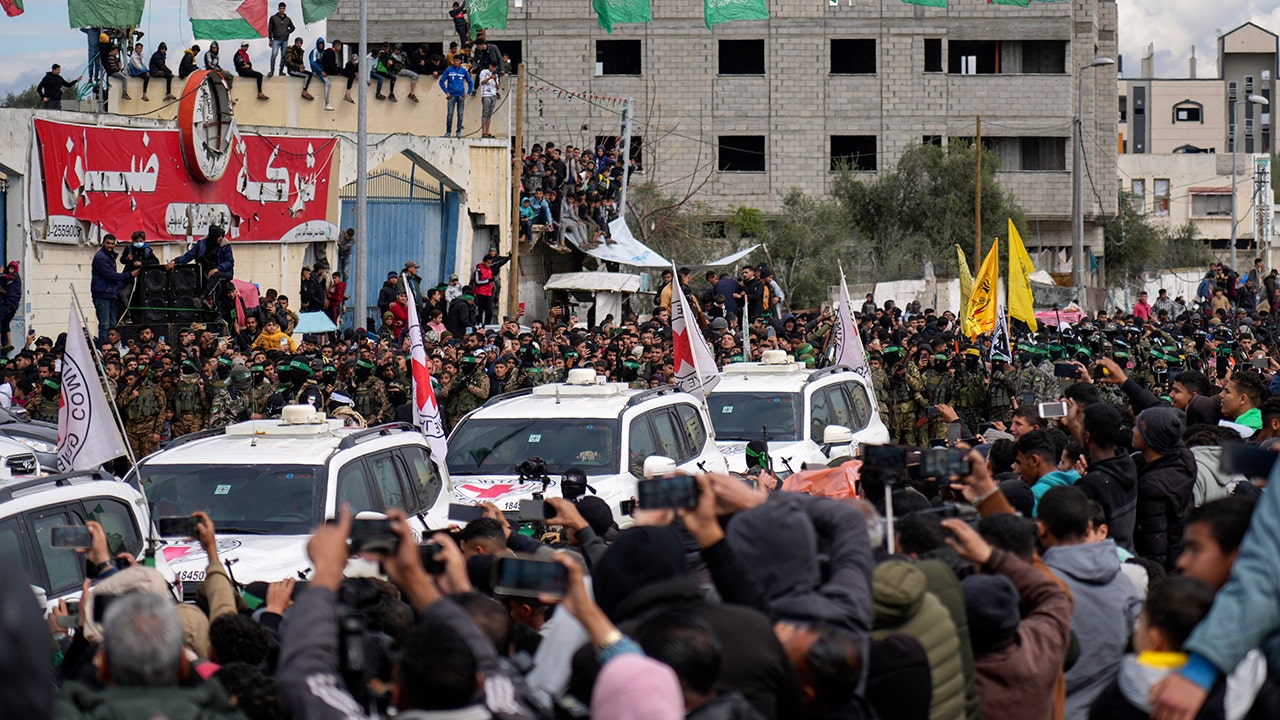A new American intelligence assessment released on Monday raised doubts about whether Prime Minister Benjamin Netanyahu of Israel could stay in power, as the C.I.A. director said a hostage deal was the most practical way to halt, at least temporarily, the war in Gaza.
The 2024 Annual Threat Assessment expressed concerns about Israel’s vision for the end of the war and said that Mr. Netanyahu’s right-wing coalition “may be in jeopardy.”
“Distrust of Netanyahu’s ability to rule has deepened and broadened across the public from its already high levels before the war, and we expect large protests demanding his resignation and new elections,” the report said. “A different, more moderate government is a possibility.”
The report predicted that Israel would struggle to achieve its goal of “destroying Hamas.”
“Israel probably will face lingering armed resistance from Hamas for years to come, and the military will struggle to neutralize Hamas’s underground infrastructure, which allows insurgents to hide, regain strength and surprise Israeli forces,” the report said.
Tensions between President Biden and Mr. Netanyahu have flared in recent days over Israel’s planned military operations in Rafah in southern Gaza. But the intelligence report, prepared over months, was written before the most recent tensions.
The annual report is usually accompanied by two days of hearings before the Senate and the House Intelligence Committees. Intelligence officials were not asked about the assessment of Mr. Netanyahu’s government in testimony before the Senate panel on Monday. Instead, questions about Israel and Gaza focused on the hostage negotiations.
William J. Burns, the C.I.A. director, returned on Saturday from his eighth overseas trip to negotiate the release of hostages. U.S. officials had hoped to secure an agreement by the beginning of Ramadan, but that deadline passed.
Mr. Burns said he was focused on pursuing a first phase of an agreement to pause the fighting in Gaza for six weeks to allow more humanitarian aid to flow into the territory and secure the release of 40 hostages. That group — remaining women, older men, and wounded or ill people — would be exchanged for Palestinian prisoners held by Israel.
Mr. Burns did not detail how many Palestinians would be released, but others briefed on the talks have said hundreds of low-level prisoners and 15 people convicted of serious crimes would be freed.
But Mr. Burns said the only way to help Gazans suffering in “desperate conditions” and provide relief to Israeli hostages and their families was to pursue a first step to something that might become a “more enduring arrangement over time.”
“I learned a long time ago in crises like this that you have to find a practical goal and pursue it relentlessly,” Mr. Burns said.
“I don’t think anybody can guarantee success,” he said. “What I think you can guarantee is that the alternatives are worse for innocent civilians in Gaza who are suffering under desperate conditions, for the hostages and their families who are suffering also under very desperate conditions, and for all of us.”
Protesters interrupted the hearing several times, calling for Israel to stop bombing Gaza and shouting that the war was “exterminating the Palestinian people.” Senator Tom Cotton, Republican of Arkansas, asked Mr. Burns if he agreed with the protesters.
Mr. Burns said that he understood Israel’s need to respond to Hamas’s Oct. 7 attack, but that “we all also have to be mindful of the enormous toll that this has taken on innocent civilians in Gaza.”
“As the president has said, it’s very important for Israel to be extremely mindful of that and to avoid, you know, further loss of civilian life,” he said.
Mr. Burns testified alongside Avril D. Haines, the director of national intelligence, and other intelligence leaders including Christopher A. Wray, the F.B.I. director.
Mr. Wray said the United States was facing elevated terrorism threats from homegrown extremists, foreign organizations and others.
“Since Oct. 7, though, that threat has gone to a whole other level,” he said. “And so this is time for much greater vigilance.”
In the annual report, the intelligence agencies concluded that “Israel will face mounting international pressure because of the dire humanitarian situation in the Gaza Strip.”
The war in Gaza is “posing a challenge” to America’s Arab partners because of growing public sentiment against both Israel and the United States caused by “the death and destruction in Gaza.” Those nations see the United States as the power broker that can end the conflict before it spreads.
The report says what many U.S. officials have said in recent months: that Iran did not orchestrate or have foreknowledge of the Oct. 7 attacks.
Both Iran and Israel are trying to calibrate their actions against each other and avoid a direct conflict, the report said. But the intelligence agencies say they believe that Iran will continue to arm and aid proxy forces that threaten the United States even after the Gaza war is over.





